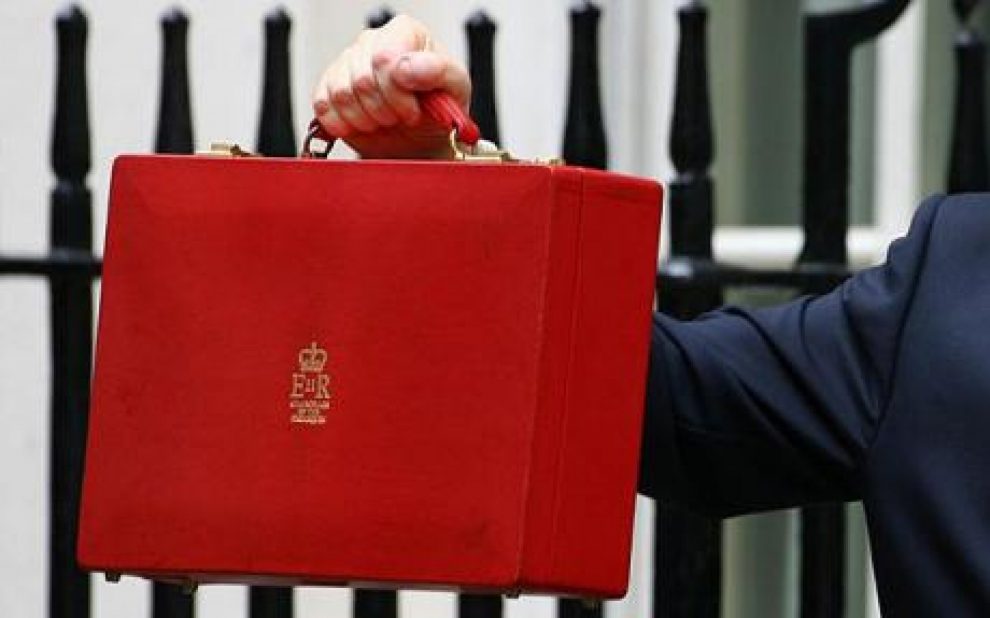CHANCELLOR of the Exchequer, Rishi Sunak, is unveiling his new budget this afternoon, he says this will prepare the country for a post-Covid “age of optimism”.
LOW WAGE WORKERS BENEFIT
The headline takeaway from a Budget long on levelling up and short of detail on what it would like is a hike in the UK’s minimum wage.
From April 1, 2022, workers over 23 will get a minimum wage rise from £8.91per hour to £9.50.
While the increase is welcome, it is counterbalanced by increased personal taxation on income, rising prices, and the accompanying cut in entitlement to Tax Credits for those who get the rise.
However, the Chancellor took the chance to change a system that perversely punishes working extra hours or earning more by a loss in Tax Credit payments and/or Universal Credit.
Before the Budget, for every £1 earned over the Tax Credit limit, Universal Credit recipients lost 63p in what the Chancellor described as ‘a tax on work’. Mr Sunak cut that to 55p/£1. Setting the level at that originally intended when the taper in Tax Credits was originally proposed by Iain Duncan-Smith.
While that sort of measure would usually only come into effect at the start of a new tax year (in this case next April), the Chancellor told the Commons the cut will come into effect no later than December 1.
That means earnings by those affected by the current arrangements will rise in the run up to Christmas.
An increase in the National Minimum Wage will be affected by an increase in inflation, especially as the rise in the former will not come in until next year.
On top of that, the Chancellor announced a £500 increase in the threshold for the basic rate of income tax.
Mr Sunak claimed a single mother with one child earning the National Minimum Wage would be better off by over £1,100 per year.
He has so far revealed that:
• Scottish government funding will go up by £4.6bn, Welsh government funding by £2.5bn, and £1.6bn for the Northern Ireland Executive
• Plans for a rise in fuel duty have been shelved due to fuel prices being their highest for 8 years.
• Draught beer duty has been cut by 5% to support “the home of British community life for centuries” – pubs.
• He promises a £44bn increase to resource spending on healthcare by the end of the Parliament
• Sunak has announced a cut to the bank surcharge that was introduced in 2015 by George Osborne meaning that banks will pay 28% tax instead of 33%.
• The universal credit taper rate has been cut from from 63% to 55%.
• A new 50% business rates discount for companies in the retail, hospitality, and leisure sectors, lasting for one year.
• Sunak is aiming for 20,000 more police officers, an extra £2.2bn for courts and rehabilitation services and £3.8bn for the “biggest prison-building programme in a generation”.
• £24bn will be earmarked for “a multi-year housing settlement”, £11.5bn of this will be set aside to build up to 180,000 new affordable homes, which he says is the largest cash investment in a decade.
• £5bn will be spent to remove unsafe cladding from the highest risk buildings, which he says will be partly funded by the Residential Property Developers Tax.
• A Scale-Up Visa system will make it quicker and easier for fast-growing businesses to bring in highly-skilled individuals.
• inflation is likely to hit 4% and acknowledges cost of living concerns but says the government has to be responsible with the public finances.
During today’s Budget, Chancellor Rishi Sunak announced there will be financial investment into the UK’s roads which will look to repair one million potholes. Tom Hixon, Head of Instructor Support at www.billplant.co.uk, commented on this announcement:
“The Chancellor today announced that there will be financial investment into roads and infrastructure which will help to see repairs made to as many as 1,000,000 potholes. But at what quality will they be filled? Ask anyone around the UK and they’ll tell you that potholes are filled and then swiftly reappear. Surely it would be better to invest in higher quality products to fill the potholes, therefore filling less but to a quality that means they will remain repaired for many years to come, than to work on as many potholes as physically possible within the budget allocated?
“We recently undertook a Freedom of Information request that revealed more than 816,000 potholes were repaired across England alone in 2020 – and that’s without all county councils sharing their data with us. It cost these councils more than £862,000 in compensation on top of the initial repair costs already forked out for. Bearing in mind that there was also far less traffic on the road last year than in a usual year.”
More to follow…
















